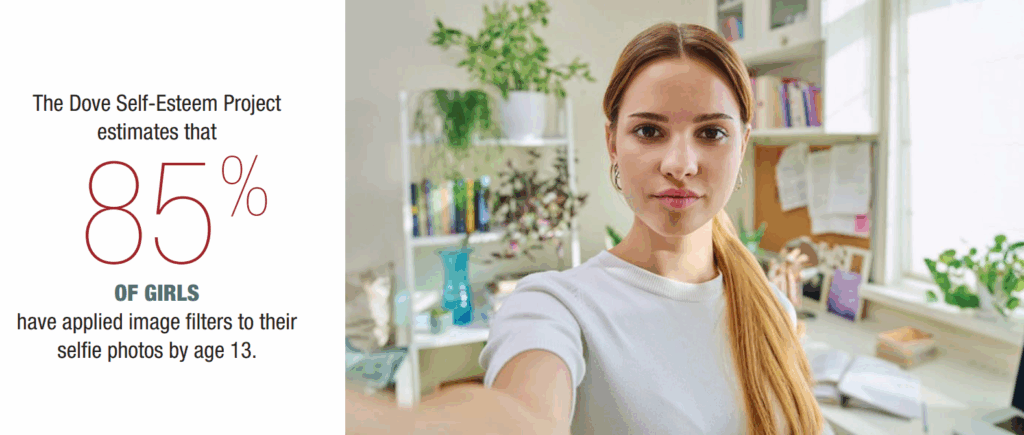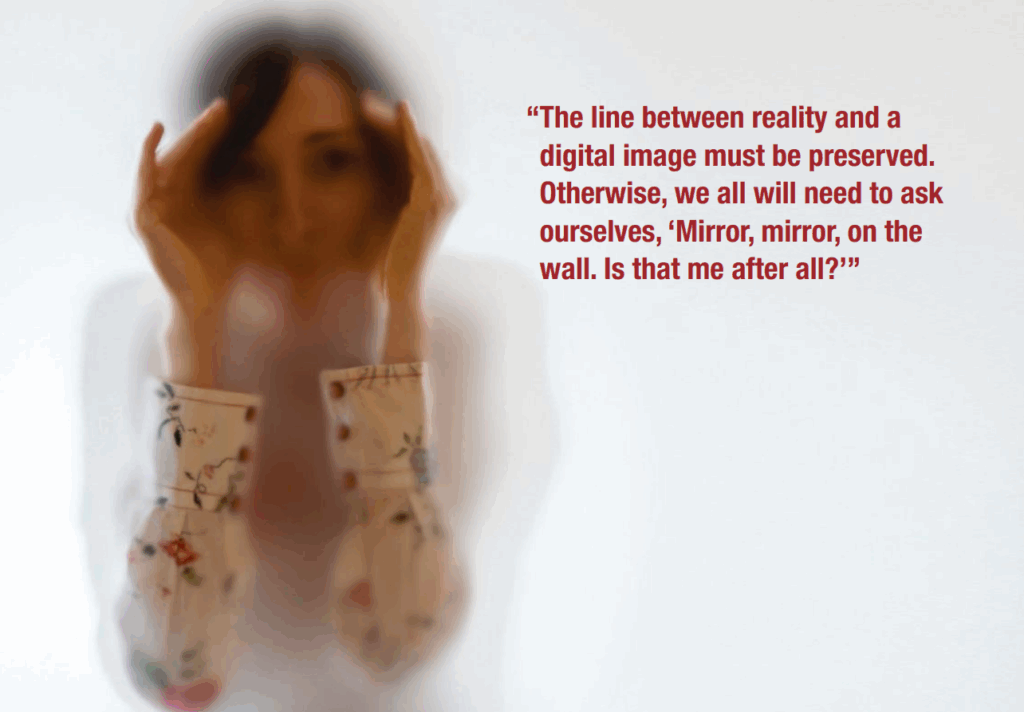By Zoe Diana Draelos, MD
The appearance revolution that occurred during the COVID-19 pandemic due to the invention of Microsoft Teams and Zoom was astounding.
All of a sudden, people were staring at their image on a computer screen for hours at a time. They were able to see their face from infinite angles and assess the shape of their nose, the angle of their jaw, the asymmetry of their lips, the bags under their eyes, etc.
Not so shockingly, this sired what the consumer media has dubbed as the “Zoom Boom”: a pronounced uptick in cosmetic surgery, neurotoxin and filler requests, and facial cosmetic sales.
However, this increase in personal appearance evaluation via the computer screen image may not be consistent with reality.
Digital cameras are known to be flawed in their image-reproduction abilities and have incorporated several digital processing utilities to improve image quality. The most notable feature is enhanced edge detection. Edge detection is used to increase the sharpness of an image, but it also can highlight any wrinkle, line, or fold on the face. While edge detection might be desirable when photographing a drop of dew on a flower petal, it is not so great when looking at your face.
This personal digital assessment had led to a whole new category of apps allowing the consumer access to very high-quality image processing.
The most popular app for personal image processing is Facetune. Facetune offers both free and paid access to image-retouching tools on your mobile device. It was developed by Lightricks, an Israeli-based startup company, in 2013, and can process still images and videos. Facetune is widely used by celebrities, such as the Kardashians, to reshape the face, eliminate undereye bags, whiten teeth, and create the image of flawless skin. It also allows smoothing of fine lines and wrinkles, age modification, and gender shifting. Facetune has been downloaded 60 million times.
The Dove Self-Esteem Project estimates that 85% of girls have applied image filters to their selfie photos by age 13. This is concerning because it creates a desire to appear to others as we want to be seen, not as we truly appear in the mirror. It is also worth mentioning that the face in the mirror appears different due to distortion induced by the camera lens, especially wide-angle lenses that alter the face by making everything appear broader.
How can you spot an image that has been tuned? First, look for shadows that do not align with the light source, especially in the eyes. Second, look for pixelated or blurred edges that are inconsistent with the sharpness of the rest of the image. Third, the image may contain geolocation data. See if the location where the image was shot agrees with the content of the image. Fourth, check the Exchangeable Image File Format (EXIF) information, which provides details about the image’s creation, including camera settings, date and time, and location.
What’s so bad about image processing? We are all familiar with body dysmorphic disorder (BDD) patients who want endless neurotoxin, fillers, and cosmetic procedures. (For more on BDD, see The Irregular Border on page 20.) They are never happy with their appearance and visit dermatologist after dermatologist seeking the one that will make them beautiful. The use of image processing is rampant on social media, and this predisposes people to unrealistic expectations, poor self-esteem, eating disorders, and personal insecurity. These are all problems already seen in young girls without the added social pressure created by image manipulation. Many young girls aspire to look like female celebrities when these images are not real, creating a disconnect between a normal female appearance and an altered image of someone that never existed.
The ability to perform professional Photoshopping in the privacy of your own home is convenient and amazing. However, as with all apps, discretion is advised. The line between reality and a digital image must be preserved. Otherwise, we all will need to ask ourselves, “Mirror, mirror, on the wall. Is that me after all?”
ABOUT THE AUTHOR
Zoe Diana Draelos, MD is in solo private practice in High Point, NC, and is the President of Dermatology Consulting Services, PLLC.
DISCLOSURES
Zoe Diana Draelos, MD, reports no disclosures.



